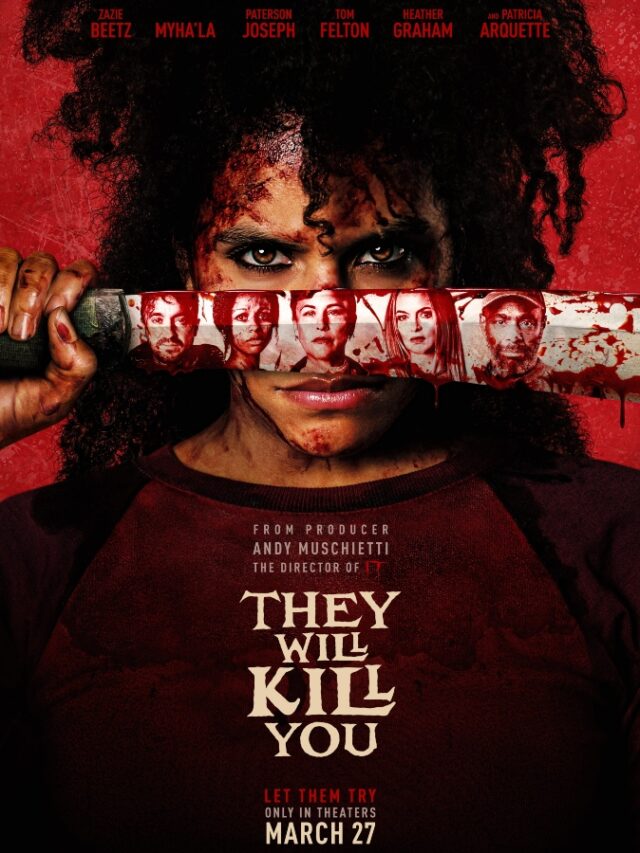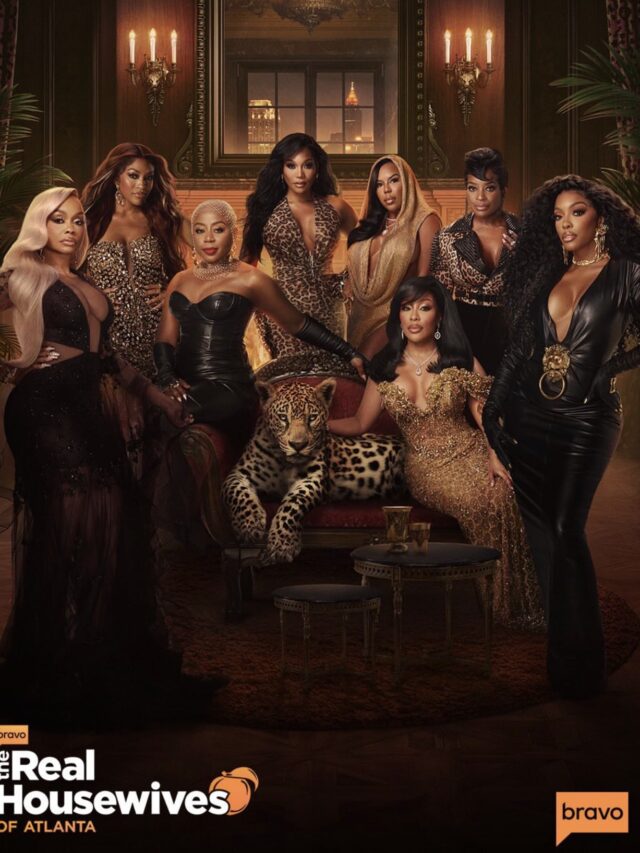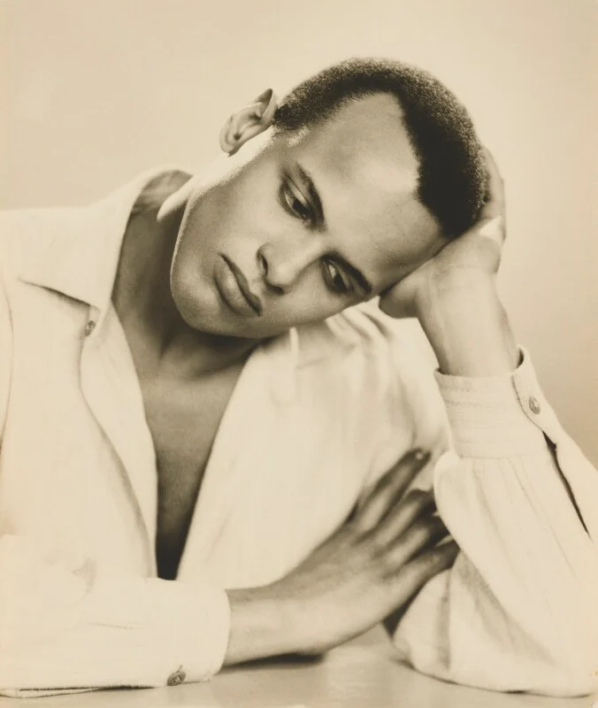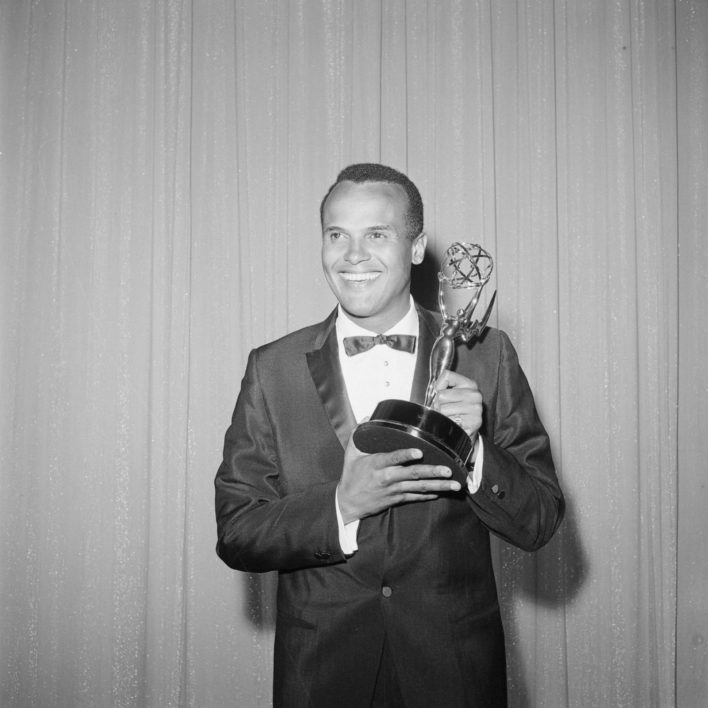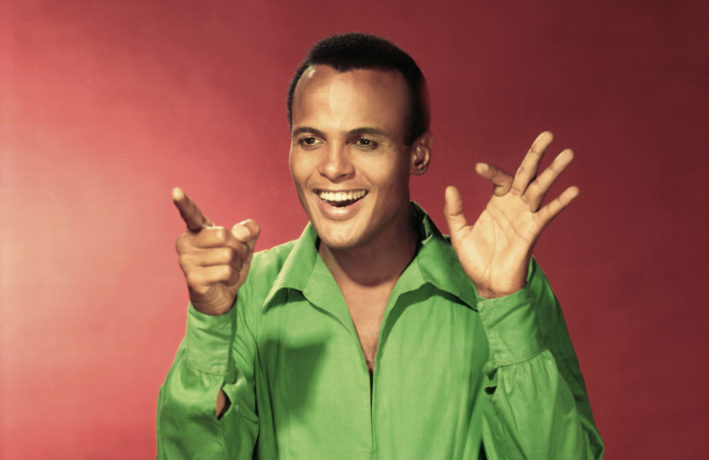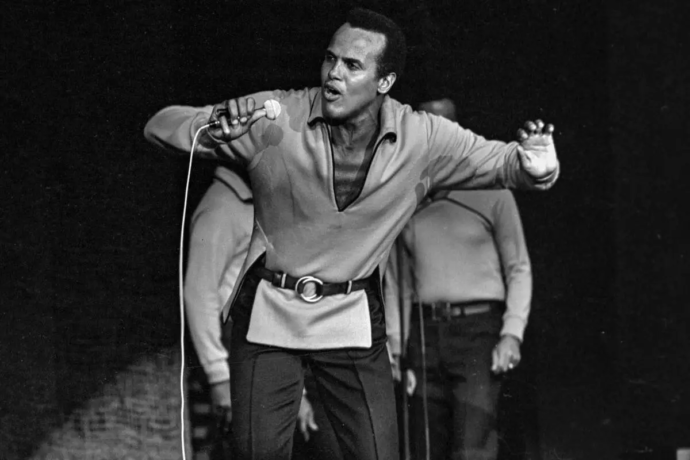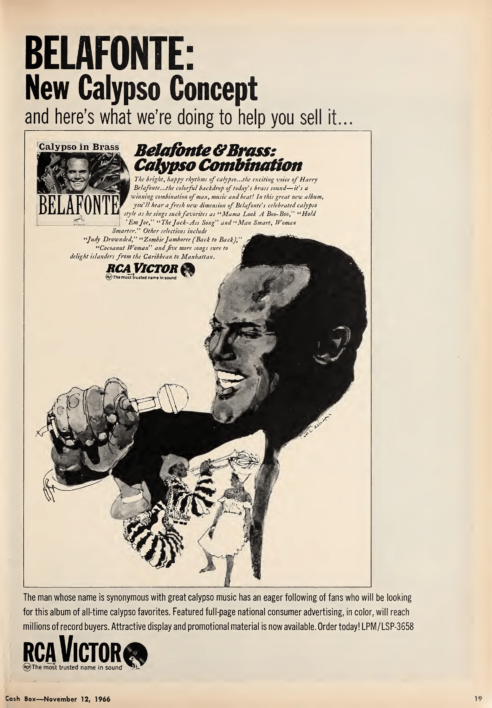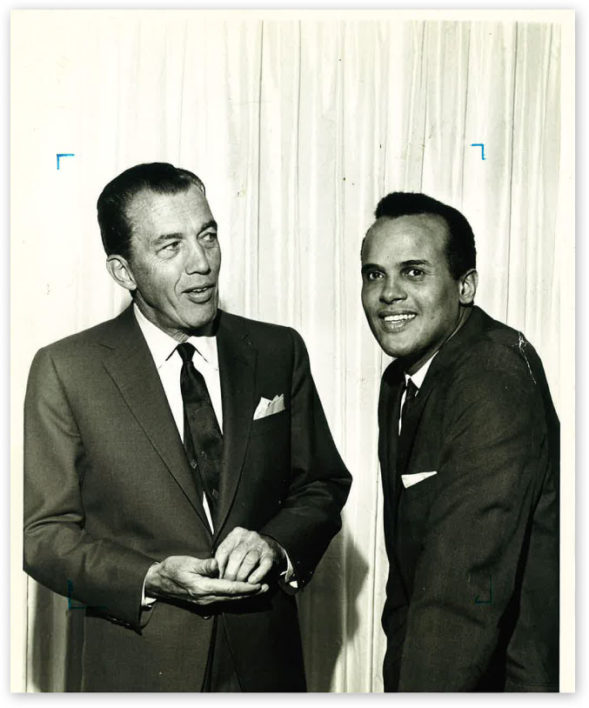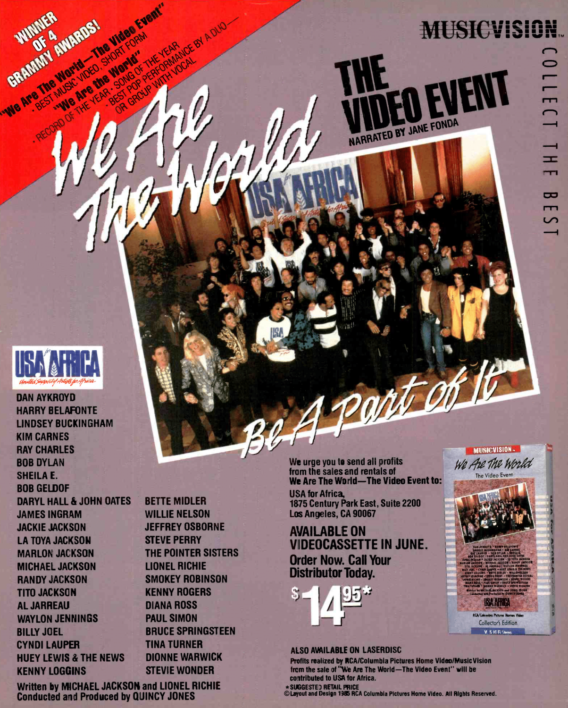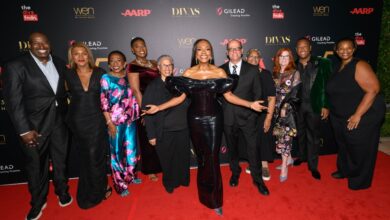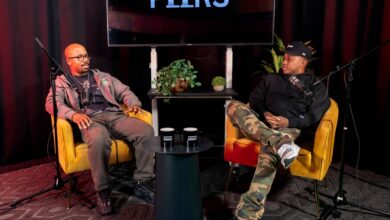TCM Present Harry Belafonte | ‘A Man Of Action Auction’
To The Public Thursday, March 6th, In Los Angeles and Online.
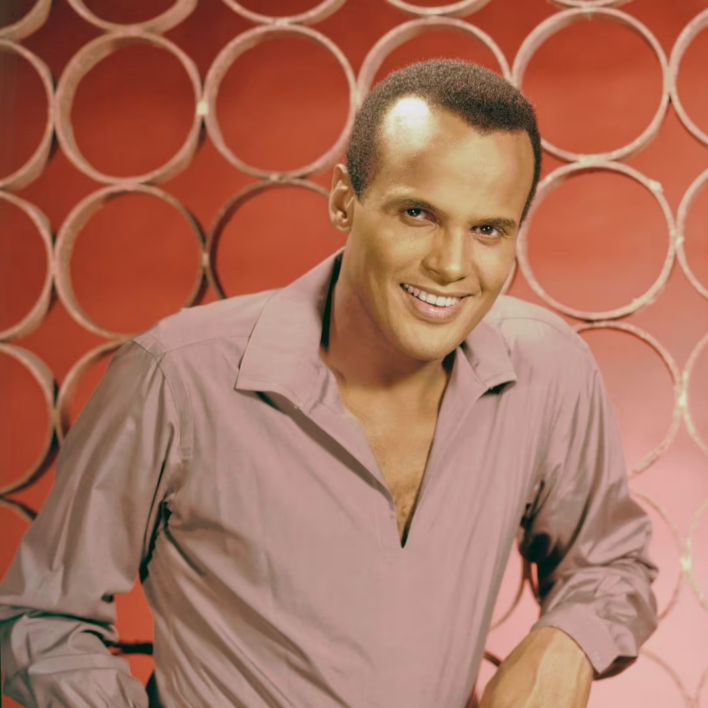
Julien’s Auctions and Turner Classic Movies (TCM), the ultimate destination for Hollywood memorabilia auctions, have announced, “Harry Belafonte | A Man Of Action Auction,” their exclusive auction event celebrating the legacy and impact of the Hollywood legend and cultural figure who channeled his groundbreaking career and super stardom to be a force for change.
A historic archive of nearly 400 artifacts representing Harry Belafonte‘s peerless career spanning seven decades as one of the 20th and 21st century’s most celebrated entertainers and lifelong activist in major civil rights movements from the 1950s through the 21st century, including the American Civil Rights movement, anti-Vietnam War, anti-apartheid, LGBTQ+ rights, and climate change will be presented for the first time to the public Thursday, March 6th, 2025 in Los Angeles and online at juliensauctions.com

“We Are the World” Items: Lead sheet signed by Harry Belafonte, Bruce Springsteen, Lindsey Buckingham, Kenny Loggins, Lionel Richie, Huey Lewis, Kim Carnes, Cyndi Lauper, Dionne Warwick, Kenny Rogers, and Paul Simon ($30,000 – $50,000) and 1986 American Music Award ($2,000 – $3,000).
Dr. Martin Luther King Jr. Relics: Leather couch used by the civil rights leader at Harry Belafonte’s New York apartment ($3,000-$5,000) and signed 1964 Southern Christian Leadership Conference letter ($5,000-$7,000).
Musical Instruments & Objects: “An Evening with Harry Belafonte & Friends” PBS Special West African drum ($300-$500) and “Global Carnival” whistle ($200-$300).
Plus, “Belafonte at Carnegie Hall” 1960 Gold Record award ($800-$1,200), Kennedy Center Honor Award ($500-$700), President John F. Kennedy signed letter ($3,000-$5,000), “Trayvon” hooded sweatshirt ($300-$500), artwork, books from friends and fellow activists and more.
Julien’s and TCM, in partnership with Black Music Action Coalition (BMAC), will also host a special screening of the acclaimed documentary Following Harry on Wednesday, February 19th with a panel featuring the documentary’s director Susanne Rostock, President & CEO of BMAC (Black Music Action Coalition) Willie “Prophet” Stiggers, Grammy nominated singer/songwriter Aloe Blacc, and Grammy Lifetime Achievement Award winning rap icon Chuck D of Public Enemy.
Harry Belafonte was a Jamaican-American, best known for popularizing calypso music with international audiences, and his involvement in the Civil Rights Movement.
The Grammy and Emmy Award-winning Harry Belafonte charted albums through 1970, and remained a cultural force thanks in part to his social activism and philanthropy.
Later generations would become familiar with Belafonte in striking ways: He helped organize (and sang on) the 1985 charity single “We Are the World,” and “Day-O” was memorably mimed by the cast in the 1988 film “Beetlejuice.”
In 2011, “Day-O” became a hit yet again, sampled in Lil Wayne’s top 10 Billboard Hot 100 hit “6 Foot 7 Foot.”
Harry Belafonte was born Harold George Bellanfanti, Jr. in 1927 in New York City. Belafonte‘s parents were Jamaican immigrants, and he spent much of his childhood in Jamaica. After attending George Washington High School in the Washington Heights neighborhood of New York City, Belafonte enlisted in the United States Navy in 1944, and served in World War II.
Upon returning from the War, Belafonte acted in productions for the American Negro Theatre in Harlem, and took acting lessons at the Dramatic Workshop of The New School. He began singing at clubs in order to pay for his classes, leading to a record contract with Roost Records in 1949, and RCA Victor in 1953. Between 1953 and 1954, Belafonte made his Broadway debut with John Murray Anderson’s Almanac, a performance which earned him a Tony Award.
Belafonte’s 1956 album, “Calypso,” helped popularize the style of Caribbean folk music, and became the first record to sell over a million copies.
It contained the hit song, “Day-O (Banana Boat Song),” which Belafonte would be closely associated with for the rest of his career.
He also starred in several films during the 1950s, including Carmen Jones (1954), Island in the Sun (1957), The World, the Flesh and the Devil (1959), and Odds Against Tomorrow (1959).
Belafonte has appeared in and produced numerous television series and specials. In 1959, he became the first Jamaican-American to win an Emmy for Revlon Revue: Tonight with Belafonte. He also produced the television movie The Strollin’ Twenties (1966) and television special A Time for Laughter (1967); filled in for Johnny Carson on The Tonight Show in February 1968; and appeared on such programs as The Ed Sullivan Show, The Smothers Brothers Comedy Hour, and The Flip Wilson Show.
Throughout the 1960s, Belafonte continued to record albums in various styles, such as pop, blues, gospel, folk, and show tunes. After releasing his final calypso album in 1971, Belafonte focused mainly on performing and toured internationally. He released five more albums in the 1970s and 1980s, including Turn the World Around (1977), whose title track he performed on The Muppet Show in 1978. In 1984, Belafonte scored and produced Beat Street, a film about New York City hip-hop culture. Other film credits include The Angel Levine (1970), White Man’s Burden (1996), Kansas City (1996), and Bobby (2006).
In addition to music and acting, Belafonte was an advocate for humanitarian and political causes throughout his life. His political views were greatly influenced by his mentor, Paul Robeson, and led to Belafonte being blacklisted in Hollywood in 1950. A decade later, he appeared in a campaign ad for John F. Kennedy, performed at his inauguration, and was appointed as a cultural advisor to the Peace Corps by Kennedy.
Belafonte was a key figure in the American Civil Rights Movement, and became a close confidant of Martin Luther King, Jr., who he bailed out of jail during the 1963 Birmingham Campaign. Belafonte also provided funding for the Student Nonviolent Coordinating Committee (SNCCC) and the 1961 Freedom Rides, participated in numerous rallies and protests, and helped organize the 1963 March on Washington For Jobs and Freedom. During this time, he began speaking out against apartheid in South Africa; his final studio album, Paradise in Gazankulu (1988), featured ten apartheid protest songs. Belafonte also helped facilitate “We Are the World,” a charity song for famine relief, and served as a UNICEF Goodwill Ambassador. In the 1990s and 2000s, he supported the campaign against AIDS in South Africa and raised education awareness in Kenya.
Belafonte received dozens of awards for his music, acting, and activism. His awards include the Kennedy Center Honors (1989), National Medal of Arts (1994), Grammy Lifetime Achievement Award (2000), Domestic Human Rights Award (2004), BET Humanitarian Award (2006), and NAACP Spingarn Medal (2013). In 2011, Sing Your Song, a documentary about Belafonte‘s life and career, was released. His memoir, My Song, was published the same year.
Belafonte has four children and resided in New York City with his wife, Pamela Belafonte.


